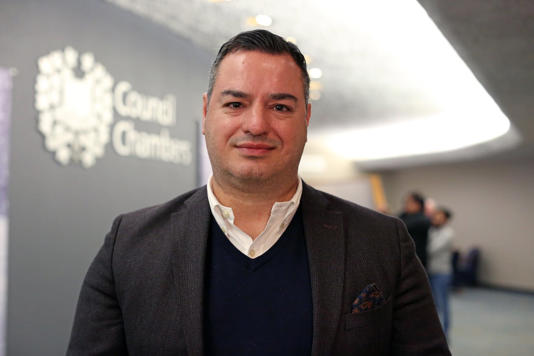
The Region of Peel is having to foot the $1.5 million bill charged by the provincially-appointed Peel Region Transition Board, even though Premier Doug Ford backed down from his plans to dissolve the region months ago.
The government abandoned plans to split the Peel Region into three independent cities in December, citing potential tax shock from the move. But the government-appointed transition board remained — with new orders to focus on speeding up home-building rather than reviewing the delivery of services like policing and paramedicine.
While giving the board new marching orders in January, Minister of Housing Paul Calandra asked the board to keep in mind “financial stability.” But for some politicians in Peel Region, the province’s U-turns on the decision are everything but that.
“This is just crazy. It is a kick in the teeth for the Region of Peel taxpayers,” Coun. Martin Medeiros said.
“We have a lack of shelter space, lack of housing… and we keep getting dragged into this uncertain future because of the province’s indecisiveness,” Medeiros said.
CBC Toronto obtained the email sent to regional councillors by Peel’s chief administrative officer Gary Kent about two bills from the transitional board: one for the time period July to December 2023 for $858,000, and another from January to March this year for $635,000.
The breakdown of that bill is unknown, causing much of the frustration around lack of transparency, Medeiros said.
Calls for board transparency
The province has made it clear: Peel is on the hook for all costs related to the board.
“The Region of Peel is responsible for all costs related to the transition board, including staff supporting the board, external expertise, and advice on complex public works matters,” Bianca Meta, spokesperson for Paul Calandra told CBC Toronto in an email statement.
She said the province covers all expenses including travel and food, but the region has to reimburse them.
That makes no sense to Coun. Gurpartap Singh Toor, who says the board is not transparent.
“You do the work, you appoint the people, you select the team, you do the report, everything, but somehow we pay the bill… and such a large bill. It’s no joke,” Toor said.
On the other hand, Caledon Mayor Annette Groves, says she has full confidence in the transition board.
“I wish I had a crystal ball to tell you what our future is going to look like. I am certain and I can tell you without a shadow of a doubt… that the province will not make any decisions that’s going to be a burden on our taxpayers,” Groves said.
Changes to the region a contentious issue
Ford announced plans to break up the Peel region in May 2023 — a decision welcomed by the then Mississauga Mayor Bonnie Crombie.
But soon after Crombie won the Ontario Liberal Leadership race in December, Ford cancelled the dissolution plan.
Brampton and Caledon welcomed the cancellation, citing previously raised concerns around “catastrophic” costs to replace water treatment and wastewater, as well as losing employees over uncertainty.
“Doug Ford’s flip-flops, reversals and his inability to think before he acts is hurting Ontario families and wasting millions of dollars in taxpayer money,” Crombie told CBC Toronto in an emailed statement.
“It’s clear the Conservatives have no plan for our province, and their unpredictable actions have done nothing but take Ontario backwards,” she said.
Meta from Calandra’s office refused to comment on these assertions.
‘Very low staff morale,’ councillor says
While the province’s new directives for the transition board earlier this year were meant to focus on speeding up building homes in the region, Medeiros said they have done the opposite.
“They’ve created more confusion in the system because developers don’t understand what’s happening. We hear that wastewater management is going to be removed,” Medeiros said. “It’s a cloak and dagger engagement.”
On top of that, staff at the region also seem uncertain about the future, with some already leaving the job, Toor said.
“Peel staff definitely have a very low staff morale right now,” he said, adding that the council is worried about losing some of the most experienced staff members.
Medeiros is asking the province to make a decision on whether it wants to split services among Peel municipalities, and pay the bill.
“It’s been a circus. This goes against the face of good governance. We’re losing staff every day,” he said.
The transition board will present a report to the province this spring about possible transfer of some services from Peel Region to the municipalities, which includes land use planning, water, wastewater and stormwater, regional roads and waste management.
Source: CBC News

